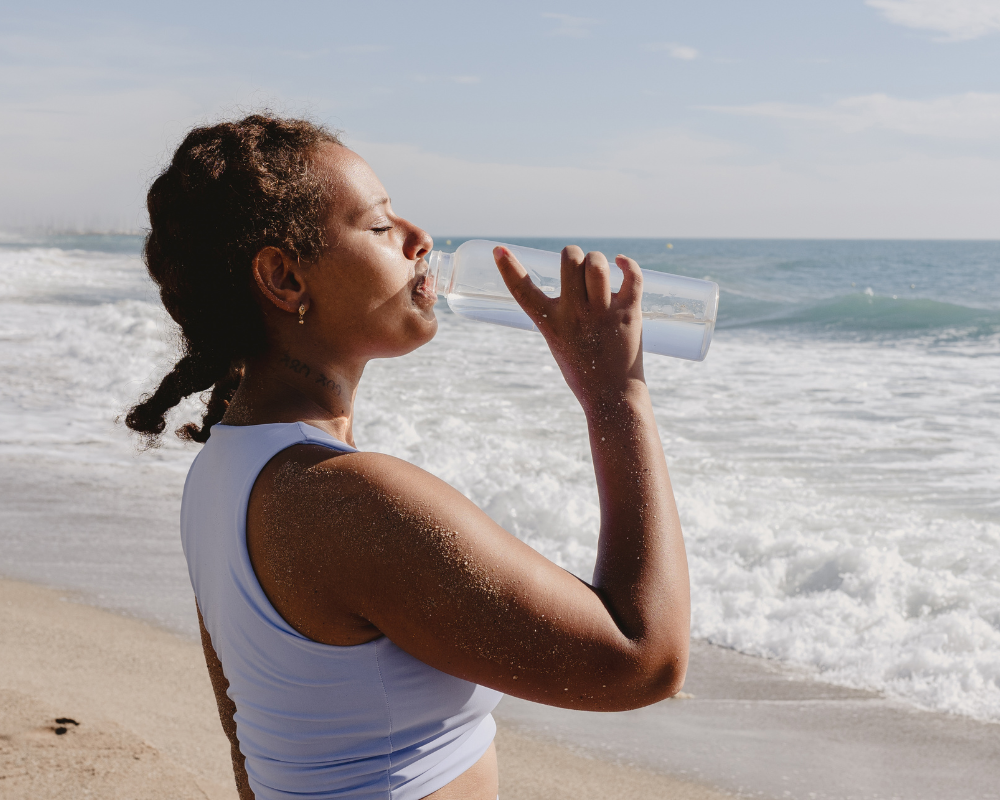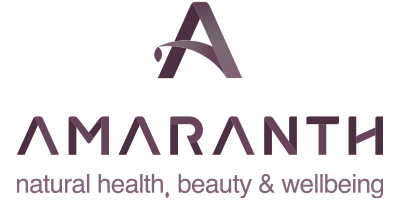Navigating Holiday Health: Essential Supplements for Travel

The holiday season brings long, chilled out days and hopefully some sunshine but it can also bring some challenges for our health. From the stresses of travel to the indulgence in rich foods, and maybe a little more alcohol than normal, our bodies often need extra support. Supplements can play a crucial role in maintaining well-being during this bustling time, giving some insurance for the immune system, the nervous system, the liver and digestive health
Here, we explore five key supplements: Vitamin B1, Saccharomyces boulardii, ashwagandha, allicin, and milk thistle, that may have a role in keeping you and your family healthy this summer.
1. Saccharomyces Boulardii: The Travel Companion
Why It's Important:
Traveling can expose you to new environments and foods, increasing the risk of digestive issues. Saccharomyces boulardii is a probiotic yeast known for its resilience and effectiveness in maintaining gut health under these conditions.
Benefits :
Traveler’s Diarrhoea Prevention: This yeast has been shown to prevent and treat diarrhoea, particularly traveller’s diarrhoea, by inhibiting the growth of pathogenic bacteria.
Recommendation: For travel, a dose of 250-500 mg per day is recommended, starting a few days before the trip and continuing throughout the travel period.
Take a Look At
2. Ashwagandha: For Stress and Anxiety
Why It's Important:
The holiday season can be stressful. Airports, a fear of flying, adjusting to new places and quality time with family and friends, they can all play a part. Ashwagandha, has good evidence to show that it may help the body manage stress more effectively. I like to take Ashwagandha in combination with other adaptogenic herbs such as rhodiola and the amino acid Theanine which have been studied for their calming effects
Benefits
Ashwagandha has been shown to lower cortisol levels, the hormone associated with stress, thereby promoting a sense of calm. It may also enhance sleep quality, helping you recover from mental demands and adjust to a new environment.
Recommendation:
A typical dose ranges from 300-500 mg of a standardized extract taken once or twice daily when taken as a single herb. In a formula a typical dosage is 150mg, alongside other herbs and amino acids. It's best taken with food to enhance absorption and minimize potential gastrointestinal discomfort and look for the KSM66 form as this is the most researched
Take a Look At : Dr Vegan Stay Calm
3. Allicin: Immune Support and Traveler’s Protection
Why It's Important:
Allicin, a compound derived from garlic, is known for its antimicrobial properties. This can be especially beneficial during holiday travel when exposure to new environments and pathogens increases.
Benefits:
Immune System Boost: Allicin has been shown to enhance immune function, helping the body to fend off infections .
Antimicrobial Properties: Allicin may be effective against a broad spectrum of bacteria, viruses, and fungi, making it a potent ally in preventing traveller’s bugs.
Recommendation :
The most well researched brand of Allicin supplements is available in 180mg capsules. Take two per day for general wellbeing and you can take up to 10 per day for acute infection. I personally start supplementation a week before traveling and continue throughout the travel period for maximum protection.
Take a Look At : Allicin Max
4. Vitamin B1 for Insect Bites
Why It's Important:
During the holiday season, especially if traveling to tropical or subtropical regions, insect bites can be a nuisance. Vitamin B1 (thiamine) has been noted for its potential to repel insects.
Benefits:
It is proposed that high doses of vitamin B1 (thiamine) can make your sweat smell unappealing to insects, thereby reducing the likelihood of bites. It would be fair to say that the research on this is limited, although we have had positive feedback from customers, and some come back for their Vitamin B1 year after year. It is also worth noting that as a water-soluble vitamin, excess thiamine is excreted in urine, making it a safe option for increasing intake temporarily during high-risk periods for insect bites.
Recommendation:
A daily dose of 200 mg of vitamin B1 is often recommended for its repellent properties. It's best to start supplementation two weeks before exposure to high-risk areas and continue throughout the stay.
Take a look at: HIGH ONE Vitamin B1 w/ B-Complex
5. Milk Thistle : For Liver Support
Holidays can be a time for overindulgence in food and drink. Fattier, richer foods and alcohol can give the liver a hard time. Traditional herbal remedies including milk thistle and artichoke, have been studied for their role in supporting the liver and digestion.
Benefits :
Milk thistle has been shown to protect liver cells from toxins (including alcohol), it also has antioxidant properties which may help to reduce the oxidative damage caused by alcohol consumption.
While these benefits suggest milk thistle may support liver health in the context of alcohol consumption, it is important to note that it is not a cure for liver disease nor a substitute for reducing alcohol intake.
Recommendation:
There is no daily recommended dosage for traditional herbs such as milk thistle, but we recommend that you choose a clean brand and look on the label to ensure that there are no added sweeteners, fillers or binders. We like to choose a product that also contains artichoke and dandelion to further support detoxification and reduce that holiday puffy, bloated feeling.
Take a Look At: Dr Vegan Debloat and Detox
Conclusion
Incorporating these supplements into your holiday routine can help to support your well-being amidst eating out and travel. Saccharomyces boulardii supports digestive vitamin B1 has potential against insect bites and Ashwagandha may help to bring a feeling of calm. Additionally, allicin provides robust immune support and protection against traveller’s bugs,
As always, consult with a healthcare provider before starting any new supplement regimen to ensure they are appropriate for your individual health needs. If you are taking medications or health concerns we always advice that you speak to your GP.
.
**References:**
1. Sanders, M. E. (2008). Probiotics: Definition, sources, selection, and uses. *Clinical Infectious Diseases*, 46(Supplement_2), S58-S61.
2. Hill, C., Guarner, F., Reid, G., Gibson, G. R., Merenstein, D. J., Pot, B., ... & Sanders, M. E. (2014). Expert consensus document: The International Scientific Association for Probiotics and Prebiotics consensus statement on the scope and appropriate use of the term probiotic. *Nature Reviews Gastroenterology & Hepatology*, 11(8), 506-514.
3. Gibson, G. E., & Hirsch, J. A. (1988). Vitamin B1 (thiamine). *Neuroscience and Biobehavioral Reviews*, 12(1), 15-30.
4. Butterworth, R. F., & Gaudreau, C. (2000). Thiamine deficiency encephalopathy. *American Journal of Clinical Nutrition*, 71(4), 1033-1042.
5. McFarland, L. V. (2010). Systematic review and meta-analysis of Saccharomyces boulardii in adult patients. *World Journal of Gastroenterology: WJG*, 16(18), 2202.
6. Kelesidis, T., & Pothoulakis, C. (2012). Efficacy and safety of the probiotic Saccharomyces boulardii. *Therapeutic Advances in Gastroenterology*, 5(2), 111-125.
7. Chandrasekhar, K., Kapoor, J., & Anishetty, S. (2012). A prospective, randomized double-blind, placebo-controlled study of safety and efficacy of a high-concentration full-spectrum extract of Ashwagandha root in reducing stress and anxiety in adults. *Indian Journal of Psychological Medicine*, 34(3), 255.
8. Langade, D., Kanchi, S., Salve, J., Debnath, K., & Ambegaokar, D. (2019). Clinical evaluation of the safety and efficacy of Ashwagandha root extract in the management of stress in adults: A prospective, randomized, double-blind, placebo-controlled study. *Cureus*, 11(12).
9. Ankri, S., & Mirelman, D. (1999). Antimicrobial properties of allicin from garlic. *Microbes and Infection*, 1(2), 125-129.
10. Cutler, R. R., & Wilson, P. (2004). Antibacterial activity of a new, stable, aqueous extract of allicin against methicillin-resistant Staphylococcus aureus. *British Journal of Biomedical Science*, 61(2), 71-74.
11. Moore, S. J., & Hill, N. (2002). Field evaluation of three plant-based insect repellents against malaria vectors in Vaca Diez province, the Bolivian Amazon. *Journal of the American Mosquito Control Association*, 18(2), 107-110.
12. Kohn, S. R. (1995). Prevention of insect bites: an update. *American Family Physician*, 52(2), 561-566.
1. Flisiak, R., & Prokopowicz, D. (1997). *The hepatoprotective and anti-inflammatory effects of silymarin in patients with chronic hepatitis C*. Med Sci Monit.
2. Pradhan, S. C., & Girish, C. (2006). *Hepatoprotective herbal drug, silymarin from experimental pharmacology to clinical medicine*. Indian J Med Res.
3. Loguercio, C., & Festi, D. (2011). *Silybin and the liver: from basic research to clinical practice*. World J Gastroenterol.
4. Ahmed, M., & Anwar, S. (2016). *Milk thistle for the treatment of liver disease: a review on the clinical evidences*. Egypt J Med Hum Genet.
